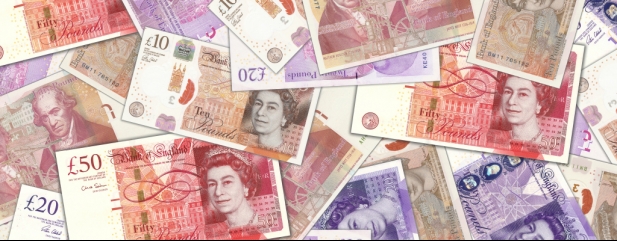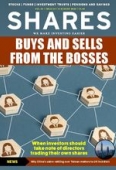Archived article
Please note that tax, investment, pension and ISA rules can change and the information and any views contained in this article may now be inaccurate.
Is now a bad time to take my pension tax-free cash?

I’m 62 and not planning to take a retirement income until state pension age. I’m worried about the rise in energy prices and want to bolster my rainy-day fund. However, my fund has fallen by around 10% this year, so am I selling at the worst possible time?
Harriett
Tom Selby, AJ Bell Head of Retirement Policy says:
Millions of households are facing severe financial strain, with inflation close to 10% and expected to hit 13% in 2022. By January next year, the average annual energy bill is predicted to be £3,600, up from £1,400 in October 2021.
As a result, it is inevitable some will turn to their savings – and potentially their pensions – to make ends meet. If you are aged 55 or older and have a defined contribution pension, you are entitled to access your pot as and when you choose, with a quarter available tax-free and the rest taxed as income.
You should think very carefully before raiding your retirement pot. Once you take your pension tax-free cash you cannot reverse that decision. If you sell your investments at a low point in the market, then the amount of tax-free cash you receive will be lower.
Let’s take the example of someone over 55 who at the start of 2022 had a pension pot worth £100,000, meaning at that point their tax-free cash entitlement was £25,000. If their fund dropped in value by 10% to £90,000, their tax-free cash entitlement would also drop to £22,500.
If they chose to take all their tax-free cash at that point in time, their existing fund would not be able to generate any new entitlement – even if it subsequently grows. It’s only new contributions that would build up an additional tax-free cash entitlement.
There are other issues to consider. You are taking money out of a tax-advantaged environment and potentially exposing it to inflation. Money held outside your pension will count to your estate for inheritance tax purposes, whereas money within a pension can potentially be passed on tax-free to your loved ones. If you spend your pension too early, you’ll increase the risk of running out of money in retirement.
Make sure you’ve properly reviewed your finances and have no other way of getting the money you need before dipping into any of your savings.
If you have other savings accounts such as ISAs, you could consider using them to bolster your rainy-day fund.
If accessing your pension is genuinely the only option, it is possible to take part of your available tax-free cash rather than the whole amount.
For example, someone with a £100,000 fund who needs just £1,000 of tax-free cash could just take that £1,000, with £3,000 going into drawdown. This would give the £96,000 ‘uncrystallised’ portion (including the tax-free cash element linked to it) the opportunity to grow over time, along with the £3,000 put into drawdown.
Another option would be to take an ad-hoc lump sum, with a quarter of the lump sum tax-free and the remaining 75% withdrawal taxed as income. Remember, if you do this you will trigger the money purchase annual allowance, which reduces your annual allowance from £40,000 to £4,000.
DO YOU HAVE A QUESTION ON RETIREMENT ISSUES?
Send an email to asktom@sharesmagazine.co.uk with the words ‘Retirement question’ in the subject line. We’ll do our best to respond in a future edition of Shares.
Please note, we only provide information and we do not provide financial advice. If you’re unsure please consult a suitably qualified financial adviser. We cannot comment on individual investment portfolios.
Important information:
These articles are provided by Shares magazine which is published by AJ Bell Media, a part of AJ Bell. Shares is not written by AJ Bell.
Shares is provided for your general information and use and is not a personal recommendation to invest. It is not intended to be relied upon by you in making or not making any investment decisions. The investments referred to in these articles will not be suitable for all investors. If in doubt please seek appropriate independent financial advice.
Investors acting on the information in these articles do so at their own risk and AJ Bell Media and its staff do not accept liability for losses suffered by investors as a result of their investment decisions.
Issue contents
Exchange-Traded Funds
Great Ideas
News
- US investors chase former ‘meme’ stocks and heavily-shorted shares
- Tesla to do the splits for second time in two years as stock price soars
- Why China’s sabre-rattling over Taiwan matters to UK investors
- Why Next wants to own part of struggling retailer Joules
- Fundsmith among the funds hit by £4.5 billion outflows in June

 magazine
magazine








